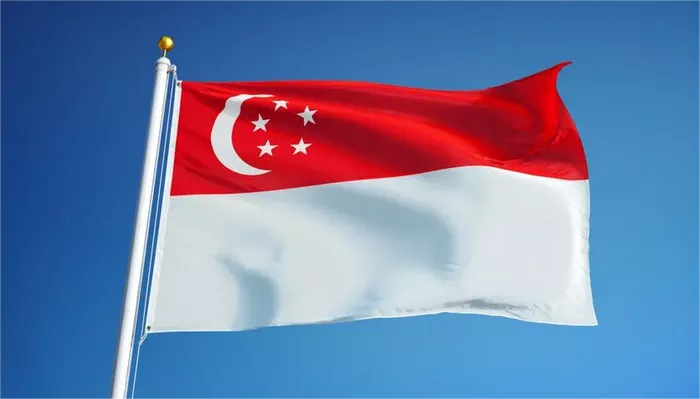Singapore, a vibrant island city-state in Southeast Asia, attracts millions of tourists each year with its rich cultural tapestry, modern infrastructure, and bustling urban life. For US citizens planning a trip to Singapore, understanding the visa requirements is essential. Fortunately, Singapore has a relatively lenient visa policy for US passport holders, making it a popular destination for leisure and business travel alike.
Visa Exemption for US Citizens
US citizens enjoy visa exemption privileges when traveling to Singapore for short-term stays. This means that they can enter Singapore for tourism, business, or visiting purposes without obtaining a visa in advance. Instead, they are granted a “visa-free entry” or “visa waiver” upon arrival at Singaporean immigration checkpoints.
Duration of Stay
Under the visa exemption program, US citizens are typically allowed to stay in Singapore for up to 90 days per visit. This duration is usually sufficient for most tourist or business purposes, allowing travelers to explore the country’s attractions, conduct meetings, or attend conferences.
Entry Requirements
While US citizens do not need a visa for short stays in Singapore, they must meet certain entry requirements upon arrival:
1. Passport Validity: US passport holders must ensure that their passports are valid for at least six months beyond the intended period of stay in Singapore. It is advisable to renew passports well in advance if they are nearing expiration.
2. Return or Onward Ticket: Immigration officials may ask for proof of onward travel, such as a return ticket or itinerary, to demonstrate that the traveler intends to leave Singapore within the permitted timeframe.
3. Sufficient Funds: Travelers may be required to show evidence of sufficient funds to cover their stay in Singapore, including accommodation, meals, and other expenses.
4. Yellow Fever Vaccination Certificate: While not mandatory for all travelers, Singapore requires proof of yellow fever vaccination if the traveler is arriving from or has transited through a yellow fever endemic country within the past six days.
5. Criminal Record: Individuals with a criminal record or certain types of convictions may be refused entry into Singapore. It is advisable to check Singapore’s immigration regulations beforehand to ensure eligibility for entry.
Extension of Stay
If US citizens need to extend their stay in Singapore beyond the initial 90-day period, they must apply for an extension through the Immigration & Checkpoints Authority (ICA) before their permitted stay expires. Extensions are granted on a case-by-case basis and are subject to approval.
Electronic Arrival Card
To streamline the immigration process and enhance efficiency, Singapore has implemented an Electronic Arrival Card (E-arrival card) system for eligible travelers, including US citizens. Instead of filling out a paper arrival card upon arrival, travelers can submit their personal and travel details electronically before their trip. The E-arrival card is valid for multiple visits and remains valid for two years from the date of approval or until the passport expires, whichever comes first.
Common Reasons for Visa Denial
While US citizens generally face few obstacles when traveling to Singapore without a visa, there are certain circumstances that may lead to visa denial or entry refusal:
1. Previous Immigration Violations: Individuals who have previously violated Singapore’s immigration laws or overstayed their permitted duration of stay may be denied entry or subjected to additional scrutiny.
2. Insufficient Documentation: Failure to provide necessary documentation or evidence of the purpose of visit, such as a business invitation letter or hotel reservation, could result in entry denial.
3. Health Concerns: Travelers with contagious diseases or health conditions that pose a risk to public health may be refused entry into Singapore.
4. Security Concerns: Individuals deemed to pose a security risk or with connections to terrorist organizations may be denied entry into Singapore.
Conclusion
For US citizens seeking to explore the vibrant city-state of Singapore, the visa exemption program offers convenience and accessibility for short-term visits. With a straightforward entry process and a generous duration of stay, travelers can immerse themselves in Singapore’s diverse cultural heritage, culinary delights, and modern attractions without the hassle of obtaining a visa in advance.
However, travelers must ensure they meet all entry requirements, including passport validity, return or onward travel arrangements, and compliance with health and security regulations. Additionally, during the COVID-19 pandemic, travelers should stay informed about any travel advisories, quarantine measures, and health protocols implemented by both the Singaporean government and relevant authorities in the United States.
By adhering to entry requirements and staying updated on travel advisories, US citizens can enjoy a memorable and hassle-free experience exploring the dynamic city-state of Singapore. Whether it’s for leisure, business, or visiting loved ones, Singapore welcomes visitors from around the world to discover its charms and hospitality.


